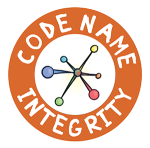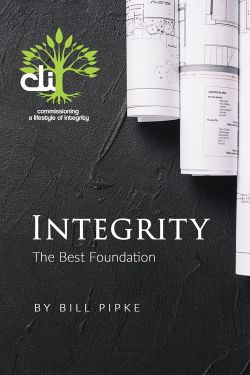Influence - Part 1 Session 1
Welcome to Integrity, the Best Foundation, the book and video series designed to help you live and lead with integrity.
Today, we're going to look at part one of the Pillar of Influence. The top of the chapter you'll read, "The selfish use of power results in impoverishment and oppression". And then we read, "But the unselfish use of power results in enrichment and opportunity".
Did you know that everyone has influence? Scott Adams wrote these words: "You don't have to be a person of influence to be influential. In fact, the most influential people in my life are probably not even aware of the things they've taught me."
Think about your life. Is there someone that, although they did not hold a position of power, had a significant influence in your life? You might want to write their name in your book, and maybe even send them a note to say, "You know, what you did for me helped to shape my life. Thank you very much." Sociologist Tim Elmore claims that even the most introverted of persons will influence up to 10,000 others in a single lifetime. It's challenging to imagine that I would influence that many people in my lifetime, but apparently I will.
The important question in influence is, "What kind of influence are you having?"
During my college years, I worked at a large grocery store, and I started out bagging groceries at the checkout stand; and then I began to stock shelves and help to face the product on the shelves. Before long, I was moved to work on the night crew.
Now, that was a fantastic opportunity for a university student, because it just fits your schedule. And I remember arriving that first night for the crew, and I had my bag lunch, and I was excited to be there. We worked, and then we met around midnight for our meal together, and just a team time. I had my bag lunch. Nobody else had a bag with a lunch in it. They just went out into the store and helped themselves to a bright fruit or a barbecued chicken or ice cream. Now, I ate my meager lunch while they dined on the bounty of the store, and that's pretty much the way it went from that time on. I ate my bag lunch and they dined on the bounty of the store.
About twelve weeks into the night-crew experience, everything changed. Our store manager met us when we arrived at work, and he informed our team that our leader would not be there that night because he had been removed from his position because of theft. Apparently, the store caught him taking food home in his backpack. Then the manager said to the team around the table, "Who do you want to have as your next team leader?" And everyone in that room pointed at me. Why did they do that? Well, I think it's called moral authority. They wanted to have someone to lead them who could be trusted.
Now, there are many, many kinds of influence, and I wrote down a few, and I've got them on the screen for you. Probably there's even more than this. But if you think of rank in office, you have positional influence, or there's charismatic influence. Someone who's really well-studied could be an expert influence.
There's spiritual influence. There is a mentor who could be a mentor influencing your life. People who have been there, done that. There's experiential influence. People who have a relationship to you can have a real impact.
And relational influence. There are those who have lived long and know so much, and so their seniority helps to have an influence.
Perhaps the most important influence of all is moral influence.
Now, some people equate power with coercion, dominance; and they subscribe to a Machiavellian philosophy of leadership. They assume that leadership has to be grabbed. It has to be kept at all costs. And Machiavellian power quiets its rivals, and acts aggressively, and it asserts dominance. But today, most leadership schools teach a non-Machiavellian approach. Real leadership, where learning is expressed in the ability to serve the interest of others, and not simply satisfy my own interests and use my power just for my own purposes. Leadership is character-based.
Now, our world cares deeply about influence. We pay for it. We fight for it and study how to get more of it. Our world measures ranks, and we ascribe it to people for some very foolish reasons. But in our constant struggle to attain influence, we often miss this very, very important truth:
We already have influence. You have influence. So instead of trying to acquire more influence, why not focus on using the influence you already have?
So here's our group question to begin to discuss:
Tell us about someone who has influenced your life, and what their influence has meant to you.




